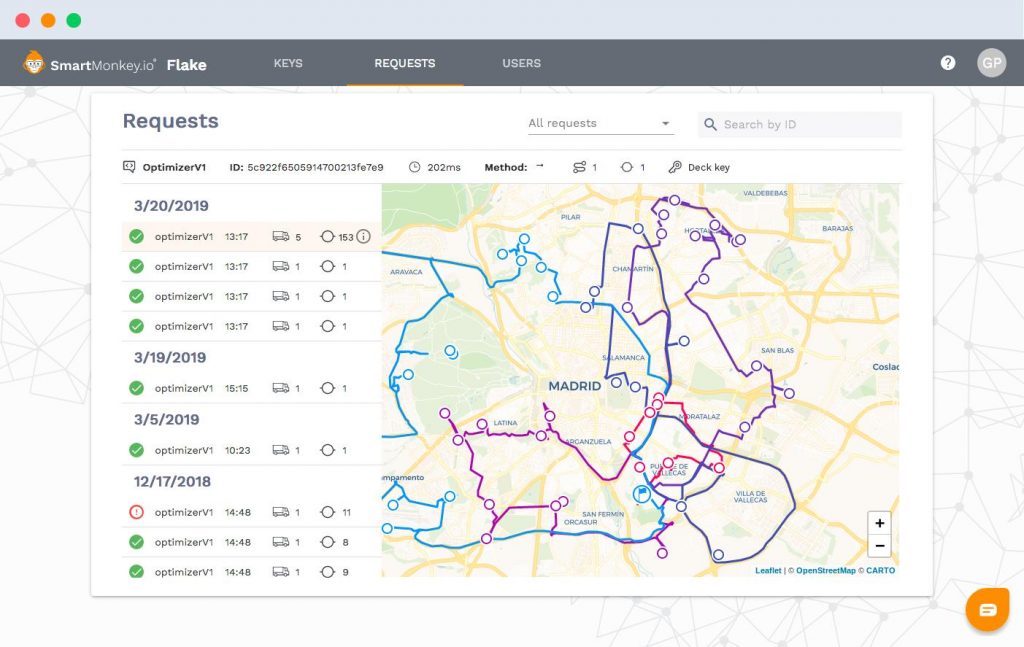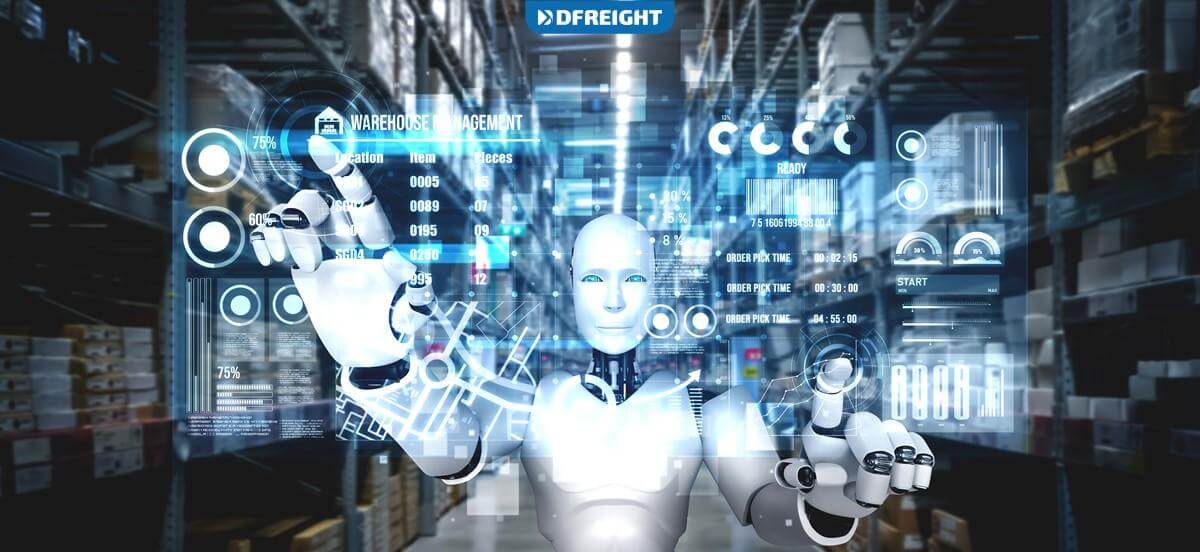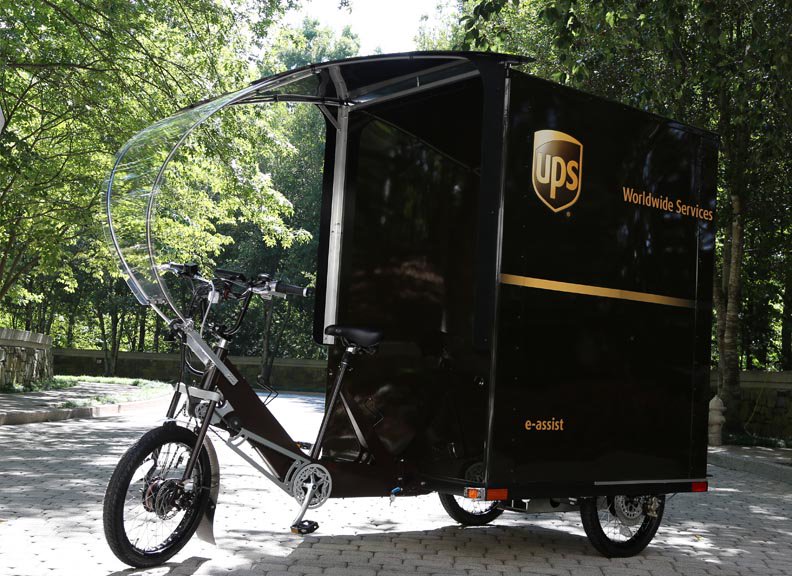The Role of Artificial Intelligence in eBike Logistics Operations
Artificial intelligence (AI) has emerged as a transformative force in the eBike logistics industry, addressing complex challenges and creating new opportunities for growth and efficiency. By leveraging AI-driven solutions, eBike logistics providers can optimize route planning, predict demand, monitor performance in real-time, and maintain their fleets more effectively. These advancements contribute to reduced operational costs, enhanced customer satisfaction, and eco-friendly transportation.

How AI-Powered Route Optimization Enhances eBike Deliveries
Artificial intelligence (AI) has revolutionized route optimization in eBike logistics, enabling providers to create the most efficient delivery routes by analyzing multiple factors, such as traffic patterns, weather conditions, and delivery windows. AI-driven route optimization algorithms process vast amounts of data in real-time, ensuring that eBike fleets can navigate through the best possible routes, thereby reducing operational costs and enhancing customer satisfaction.
One prominent example of AI-powered route optimization is Google Maps, which uses machine learning algorithms to analyze traffic patterns and suggest the fastest routes. For eBike logistics companies, specialized software solutions are available to optimize routes specifically for eBikes, taking into account factors like battery range and charging stations. These tools help eBike logistics providers minimize delivery times, save energy, and reduce their carbon footprint.
AI-driven route optimization offers several benefits for eBike logistics businesses, including:
- Reduced fuel consumption and energy costs
- Minimized delivery times and increased productivity
- Improved customer satisfaction due to accurate delivery estimates
- Enhanced eco-friendliness and reduced carbon emissions
By integrating AI-powered route optimization into their operations, eBike logistics providers can streamline their delivery processes, allocate resources more effectively, and maintain a competitive edge in the rapidly evolving logistics landscape.

Demand Forecasting with AI in eBike Logistics
Artificial intelligence (AI) has proven to be a valuable tool for eBike logistics providers in predicting demand by analyzing historical data, seasonal trends, and external factors. By leveraging AI-driven demand forecasting, companies can optimize resource allocation, reduce wastage, and improve customer service, ultimately leading to enhanced operational efficiency and profitability.
AI algorithms can process vast amounts of data, identifying patterns and correlations that might be overlooked by human analysts. By analyzing historical delivery data, seasonal fluctuations, and external factors like holidays, events, and economic indicators, AI-powered demand forecasting tools can generate accurate demand predictions. These predictions enable eBike logistics providers to make informed decisions regarding fleet size, staffing, and resource allocation, ensuring that they can meet customer demand while minimizing operational costs.
The benefits of AI-driven demand forecasting in eBike logistics include:
- Improved resource allocation, leading to reduced wastage and costs
- Enhanced customer service through better anticipation of demand
- Optimized fleet management, ensuring that eBikes and riders are deployed efficiently
- Increased operational efficiency and profitability
By integrating AI-powered demand forecasting into their operations, eBike logistics providers can proactively address potential bottlenecks, plan for peak demand periods, and maintain a lean, efficient, and responsive operation. This not only improves customer satisfaction but also ensures that resources are utilized optimally, reducing wastage and minimizing environmental impact.

Real-Time Monitoring and Predictive Maintenance in eBike Logistics
Artificial intelligence (AI) plays a crucial role in enabling real-time monitoring and predictive maintenance of eBike fleets, ensuring optimal performance and reducing operational costs. By leveraging AI-powered Internet of Things (IoT) devices and sensors, eBike logistics providers can monitor eBike performance in real-time, detect potential issues before they become critical, and implement predictive maintenance strategies.
AI-powered sensors and devices collect and analyze data from eBikes, including battery levels, motor temperature, and usage patterns. By continuously monitoring this data, AI algorithms can identify trends, detect anomalies, and predict potential issues. This enables eBike logistics providers to perform maintenance proactively, addressing problems before they result in costly downtime or component failures.
Predictive maintenance offers several benefits to eBike logistics providers:
- Minimized downtime, ensuring that eBikes are always available for delivery tasks
- Extended lifespan of eBike fleets, reducing the need for frequent replacements
- Reduced maintenance costs, as issues are addressed proactively and efficiently
- Improved safety, as potential issues are detected and resolved before they pose a risk to riders or the public
By integrating AI-powered real-time monitoring and predictive maintenance into their operations, eBike logistics providers can ensure that their fleets are always operating at peak efficiency. This not only reduces operational costs but also enhances customer satisfaction by ensuring timely and reliable deliveries. Furthermore, predictive maintenance contributes to a more eco-friendly transportation solution by minimizing waste and reducing the need for frequent component replacements.
The Future of AI in eBike Logistics: Autonomous eBikes and Drones
Artificial intelligence (AI) holds immense potential to revolutionize the eBike logistics industry, particularly in the realm of autonomous eBikes and drones for last-mile delivery. These cutting-edge technologies offer numerous benefits, including increased efficiency, reduced labor costs, and a more eco-friendly transportation solution.
Autonomous eBikes leverage AI algorithms and sensors to navigate urban environments, avoiding obstacles and making real-time decisions. By automating the delivery process, eBike logistics providers can reduce labor costs, increase delivery speed, and enhance customer satisfaction. Moreover, autonomous eBikes can operate during off-peak hours, reducing traffic congestion and contributing to a more sustainable transportation ecosystem.
However, the implementation of autonomous eBikes in eBike logistics comes with challenges, such as ensuring safety, addressing regulatory frameworks, and overcoming public skepticism. To address these concerns, eBike logistics providers must collaborate with local governments, technology partners, and community stakeholders to develop guidelines and best practices for integrating autonomous eBikes into existing transportation infrastructure.
In addition to autonomous eBikes, drones are another promising AI-driven technology for last-mile delivery in eBike logistics. Drones can quickly transport lightweight packages over short distances, bypassing traffic congestion and reducing delivery times. By combining drones with eBikes, logistics providers can create a hybrid delivery system that maximizes the strengths of both technologies.
Despite their potential, drones in eBike logistics face similar challenges as autonomous eBikes, including regulatory hurdles, safety concerns, and public acceptance. To overcome these barriers, eBike logistics providers must work closely with aviation authorities, technology partners, and community stakeholders to develop a comprehensive framework for drone integration.
The future of AI in eBike logistics is bright, with autonomous eBikes and drones poised to transform last-mile delivery. By addressing the challenges associated with these technologies and collaborating with industry partners and regulators, eBike logistics providers can harness the power of AI to create a more efficient, eco-friendly, and customer-centric transportation solution.
Choosing the Right AI Solution for Your eBike Logistics Business
Selecting the most suitable AI solution for eBike logistics businesses is a critical decision that can significantly impact operational efficiency, customer satisfaction, and long-term growth. When evaluating AI platforms and tools, businesses should consider several factors, including budget, scalability, integration with existing systems, and vendor support.
Popular AI platforms and tools, such as IBM Watson, Microsoft Azure, and Amazon Web Services, offer various applications in eBike logistics. For instance, IBM Watson’s AI capabilities can help eBike logistics providers optimize routes, predict demand, and perform predictive maintenance. Meanwhile, Microsoft Azure and Amazon Web Services provide cloud-based AI solutions that enable real-time data processing, machine learning, and analytics.
When selecting an AI solution, eBike logistics businesses should first define their specific needs and objectives. For example, if reducing operational costs is a priority, businesses should consider AI solutions that offer route optimization and predictive maintenance capabilities. On the other hand, if improving customer satisfaction is a key goal, businesses should look for AI solutions that provide real-time tracking, personalized communication, and demand forecasting.
Scalability is another critical factor to consider when choosing an AI solution. As eBike logistics businesses grow, their AI solution should be able to handle increasing data volumes and complexities. Therefore, businesses should select AI platforms and tools that offer flexible pricing plans, customizable features, and robust infrastructure.
Integration with existing systems is also essential to ensure a seamless transition to AI-driven eBike logistics. Businesses should look for AI solutions that can easily integrate with their existing software, such as transportation management systems, warehouse management systems, and customer relationship management tools.
Finally, vendor support is crucial to ensure the successful implementation and adoption of AI in eBike logistics. Businesses should select AI vendors that offer comprehensive support services, including installation, training, and ongoing maintenance. Additionally, businesses should consider vendors that have experience working with eBike logistics providers and a proven track record of delivering AI solutions that meet their specific needs and objectives.
In summary, choosing the right AI solution for eBike logistics businesses requires careful consideration of several factors, including budget, scalability, integration with existing systems, and vendor support. By selecting the most suitable AI platform or tool, eBike logistics providers can streamline their operations, reduce operational costs, enhance customer satisfaction, and stay competitive in the rapidly evolving eBike logistics industry.

Implementing AI in eBike Logistics: Best Practices and Challenges
Implementing Artificial Intelligence (AI) in eBike logistics can significantly improve operational efficiency, reduce costs, and enhance customer satisfaction. However, successful AI implementation requires careful planning, execution, and ongoing management. Here are some best practices and challenges to consider when implementing AI in eBike logistics.
Best Practices
- Set Clear Objectives: Define specific, measurable, and achievable goals for AI implementation. This will help ensure that the technology is aligned with the business’s overall strategy and objectives.
- Involve Stakeholders: Engage all relevant stakeholders, including employees, customers, and partners, in the AI implementation process. This will help ensure that the technology is well-understood, accepted, and adopted.
- Measure Performance: Establish metrics to measure the success of AI implementation. This will help identify areas for improvement and ensure that the technology is delivering the desired outcomes.
Challenges
- Data Privacy: AI implementation in eBike logistics often involves collecting and analyzing large amounts of data. Ensuring data privacy and security is essential to comply with regulations and protect sensitive information.
- Data Quality: AI algorithms rely on high-quality data to make accurate predictions and decisions. Ensuring the accuracy, completeness, and relevance of data is critical to the success of AI implementation.
- Talent Acquisition: Implementing AI in eBike logistics requires specialized skills and expertise. Attracting and retaining talent with the necessary skills can be challenging, especially in a competitive job market.
In summary, implementing AI in eBike logistics requires careful planning, execution, and ongoing management. By setting clear objectives, involving stakeholders, and measuring performance, eBike logistics businesses can leverage AI to improve operational efficiency, reduce costs, and enhance customer satisfaction. However, challenges such as data privacy, data quality, and talent acquisition must be addressed to ensure the success of AI implementation.

Overcoming AI Adoption Barriers in eBike Logistics
Artificial Intelligence (AI) has the potential to revolutionize the eBike logistics industry, offering numerous benefits such as increased efficiency, reduced costs, and enhanced customer satisfaction. However, despite its potential, some eBike logistics businesses may face barriers to AI adoption. Here are some potential barriers and solutions to overcome them.
Resistance to Change
Resistance to change is a common barrier to AI adoption in any industry. Employees may be hesitant to learn new technologies or fear that AI will replace their jobs. To overcome this barrier, eBike logistics businesses can provide education and training to employees, emphasizing the benefits of AI and how it can help them perform their jobs more effectively. Businesses can also assure employees that AI will not replace their jobs but rather augment their tasks, allowing them to focus on more strategic and value-added activities.
Lack of Understanding
Another barrier to AI adoption is a lack of understanding of the technology and its potential benefits. eBike logistics businesses can overcome this barrier by providing clear and concise information about AI and its applications in the industry. Businesses can also partner with AI experts or vendors who can provide guidance and support throughout the AI adoption process.
High Initial Investment
AI adoption can require a significant upfront investment, which may be a barrier for some eBike logistics businesses. However, businesses can start small and scale up their AI adoption over time. This approach allows businesses to test the technology and its benefits before making a more significant investment. Businesses can also explore financing options, such as leasing or renting AI equipment, to reduce the upfront cost.
Data Privacy and Security
Data privacy and security are critical concerns for eBike logistics businesses when adopting AI. Businesses must ensure that the AI technology they adopt complies with data privacy regulations and protects sensitive information. To overcome this barrier, eBike logistics businesses can work with AI vendors who have a strong track record of data privacy and security. Businesses can also implement robust data governance policies and procedures to ensure the protection of sensitive information.
Talent Acquisition
AI adoption requires specialized skills and expertise, which may be a barrier for some eBike logistics businesses. To overcome this barrier, businesses can partner with AI vendors who provide training and support to their employees. Businesses can also explore talent acquisition strategies, such as hiring AI experts or offering training programs to existing employees.
In summary, eBike logistics businesses may face barriers to AI adoption, such as resistance to change, lack of understanding, high initial investment, data privacy and security, and talent acquisition. However, businesses can overcome these barriers by providing education and training, partnering with AI experts, starting small and scaling up, exploring financing options, implementing robust data governance policies, and offering talent acquisition strategies. By overcoming these barriers, eBike logistics businesses can leverage AI to improve operational efficiency, reduce costs, and enhance customer satisfaction.


